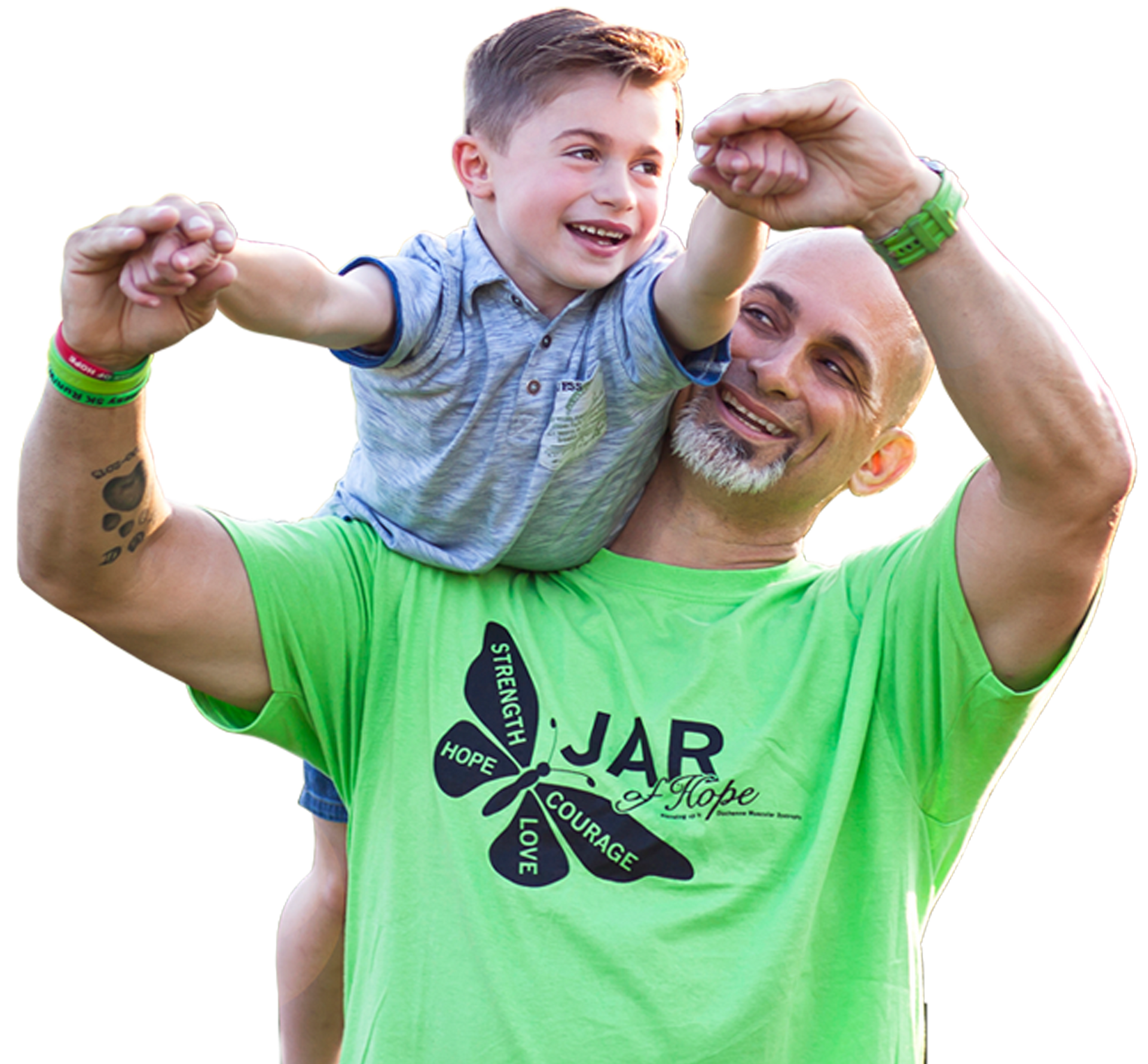OUR STORY
Founded by Jim Raffone, the NJ Run for Hope initiative aims to raise vital funds and awareness for Duchenne muscular dystrophy and other charitable causes.
MEET OUR FOUNDER
we're driven by a passion to make a difference in the lives of individuals and families affected by DMD and other worthy causes.
Welcome to NJ Run 4 Hope Half Marathon, where every step counts in the fight against Duchenne muscular dystrophy (DMD) and other causes affecting our community. Founded by Jim Raffone, this event is more than just a race—it's a symbol of resilience, hope, and the relentless pursuit of a cure for this devastating disease.
Jim Raffone's journey with Duchenne began when his son, Jamesy, was diagnosed with DMD. This rare genetic disorder primarily affects boys, gradually robbing them of their muscle strength and mobility. Witnessing firsthand the challenges and uncertainties that come with Duchenne, Jim was inspired to take action.

Jamesy: A Beacon of Courage and Hope for Duchenne
Jamesy, the inspiration behind the NJ Run 4 Hope Half Marathon, embodies the courage and resilience of countless individuals living with Duchenne muscular dystrophy (DMD). Diagnosed with DMD at a young age, Jamesy's infectious spirit and unwavering determination have touched the hearts of all who know him. Despite the challenges he faces, Jamesy approaches each day with a smile, reminding us of the power of hope and the importance of cherishing every moment. His boundless enthusiasm fuels our commitment to finding a cure for Duchenne and creating a brighter future for all those affected by this relentless disease. Jamesy's bravery serves as a guiding light, inspiring us to push forward in our mission to make a difference in the lives of individuals like him.
WHAT IS DUCHENNE MUSCULAR DYSTROPHY?
Duchenne muscular dystrophy (DMD) is a genetic disorder primarily affecting boys that is characterized by progressive muscle degeneration and weakness.
a rare genetic disordeR FOR WHICH THERE IS NO CURE.
Duchenne muscular dystrophy (DMD) is a rare genetic disorder that primarily affects boys, causing progressive muscle degeneration and weakness. This condition is caused by mutations in the dystrophin gene, which is responsible for producing a protein called dystrophin. Without sufficient dystrophin, muscle cells become damaged and weaken over time, leading to the characteristic symptoms of DMD.
Typically, symptoms of Duchenne muscular dystrophy are noticeable in early childhood, between the ages of 3 and 5. Children may experience delays in reaching developmental milestones such as walking and running. As the disease progresses, individuals with DMD may have difficulty walking, climbing stairs, and performing other motor activities. Muscles become progressively weaker, leading to mobility issues and affecting the ability to perform everyday tasks.
As Duchenne muscular dystrophy advances, it can also affect other muscles in the body, including those involved in breathing and heart function. Respiratory complications such as difficulty breathing and sleep apnea can arise, and cardiac problems may develop as the heart muscle weakens. These complications require careful monitoring and management to maintain overall health and quality of life.



